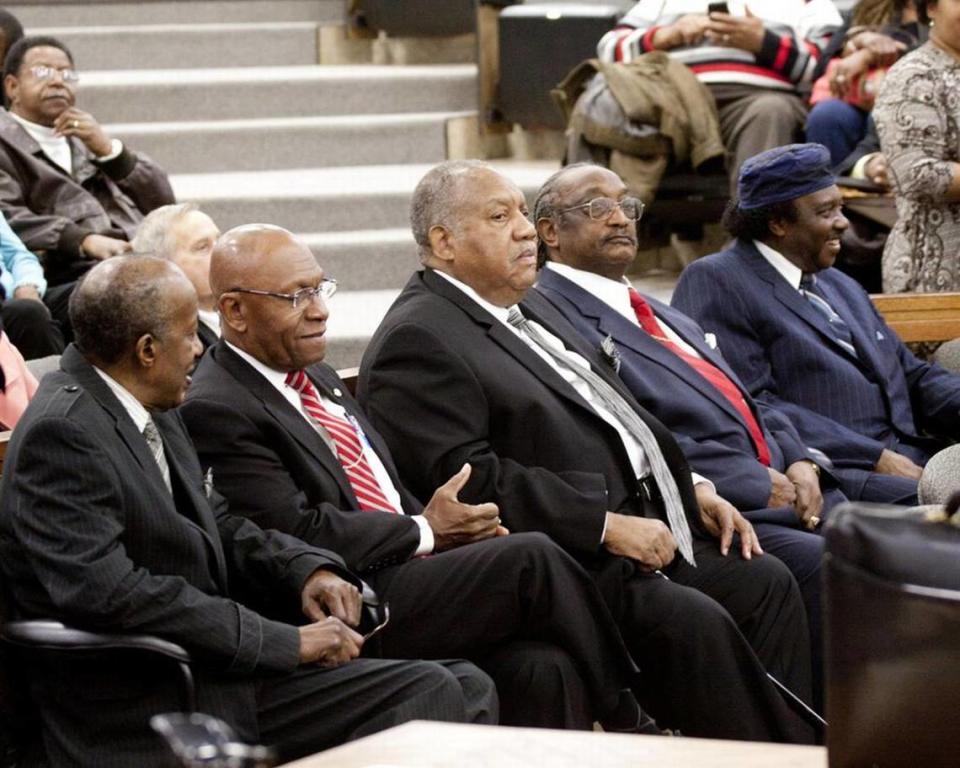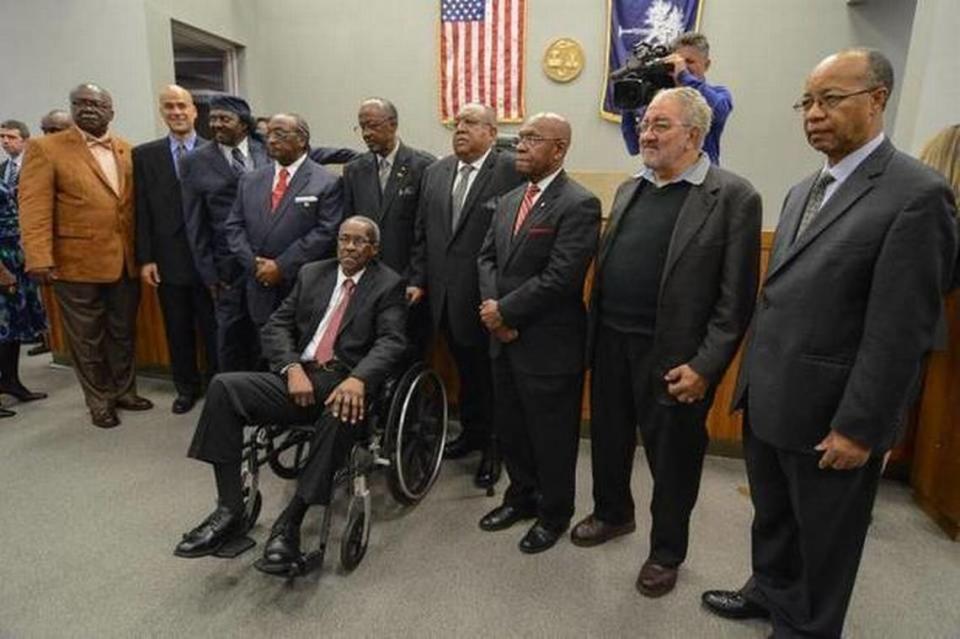Friendship 9’s John Gaines dies at 83. SC civil rights group pioneered ‘jail, no bail’
South Carolina civil rights legend John Alexander Gaines, who spent a month in the York County jail in 1961 after protesting segregation in his hometown of Rock Hill, has died in Florence.
Gaines, 83, died June 5, according to the Florence County Coroner’s Office. A retired lawyer, Gaines lived in Florence for much of his adult life.
In 1961, Gaines and others affiliated with Friendship Junior College were arrested at a Rock Hill lunch counter that was “whites only.” They were convicted of trespassing the next day and spent a month in jail rather than pay the $100 fine. Their “Jail, No Bail” strategy, adopted after months of citywide sit-in protests that began February 1960 in Rock Hill, was crucial in bringing attention to segregated conditions in the South.
The Friendship Nine protesters, also dubbed the “Rock Hill Nine,” spent a month on the York County chain gang. The “Jail, no Bail” movement spread throughout the country as the public saw protesters who demanded an end to segregation were willing to stay in jail to show their commitment to positive change.
The movement inspired others across the county.
Gaines: A life in civil rights
A student leader of the NAACP who helped organize many of Rock Hill’s protests in the civil rights era, Gaines graduated from Benedict College in Columbia and Howard University Law School.
Gaines served as a clerk for Matthew Perry, the legendary African-American lawyer in South Carolina for whom the federal courthouse in Columbia is named. Gaines came back to Rock Hill before he joined the NAACP Legal Defense team in Florence.
Through most of his adult life, Gaines was a civil rights lawyer who continued to fight for others, said another Friendship Nine member, David Williamson Jr.
“John Gaines was a warrior,” Williamson said Monday. “He was never afraid. He believed in what we were doing then and did it all his life. He always put others before himself.”
On the 50th anniversary of the 1961 protests, Gaines told The Herald he and the other young Black men in the Friendship Nine wanted a better country for all people.
“We had no idea at the time we did this that our actions would re-ignite the civil rights movement across the South,” Gaines said in 2011.
“The movement was waning because protests had gone on for almost a year without gains, but us going to jail — and the attention it received — brought new energy to the movement.
“The actions did make a difference in Rock Hill and all over, even if it took some years, and encouraged me to become a lawyer so that I could help others of all races, and make my country a better place.”
Funeral services for Gaines are pending.
The Friendship Nine
The Friendship Nine in 1961 was a group of eight students at Friendship Junior College in Rock Hill and Thomas Gaither, a civil rights organizer. Surviving members are Willie “Dub” Massey, Gaither and Williamson. Other Friendship Nine members who have died are Mack Workman, Willie McLeod, Robert McCullough, Clarence Graham and James Wells.
The stools at Kounter restaurant on Main Street, the site of the original sit-in and arrest, have the names of all the protesters on them.
The protest on Jan. 31, 1961 involved the Friendship Nine sitting down at the McCrory’s lunch counter after a year of marches by civil rights protesters in downtown Rock Hill.

In January 2015, the convictions of the Friendship Nine were vacated in a historic court hearing in Rock Hill.
Sixteenth Circuit Solicitor Kevin Brackett, York County’s top prosecutor, apologized on behalf of the state and public at that hearing for the convictions based solely on the African-American race of those arrested and convicted.



